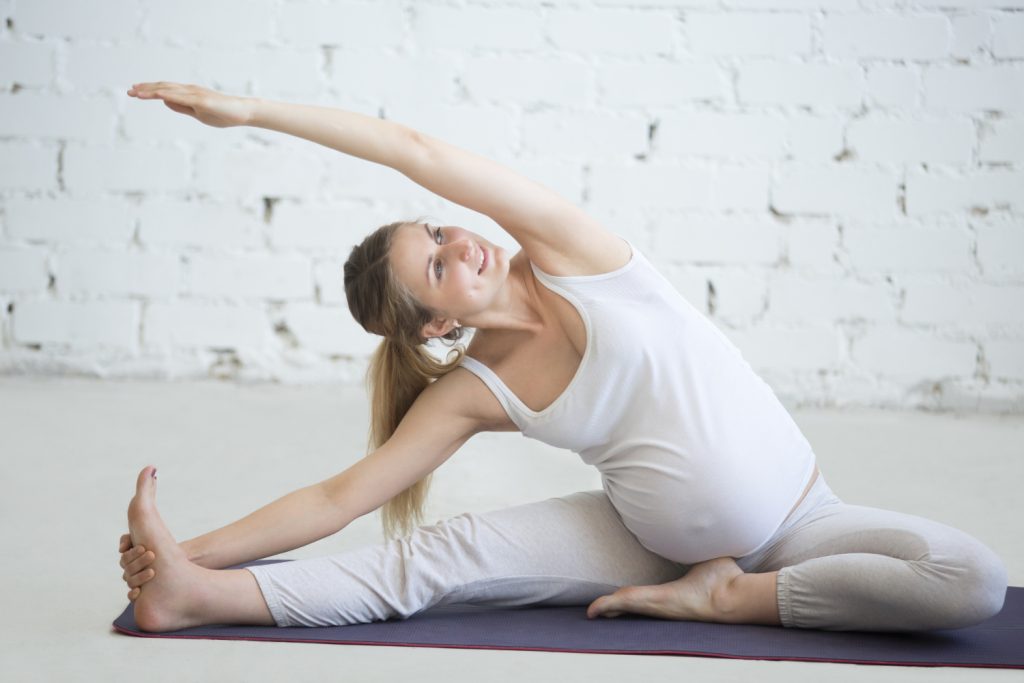Pilates for Pregnancy can Help You Adapt to Your Changing Body
Pregnancy is a transformative journey that brings about numerous changes in a woman’s body. It’s a joyous time of excitement, anticipation, and a deep desire to ensure the well-being of both the mother and the growing baby. One aspect that plays a crucial role in maintaining a healthy pregnancy is exercise. In this comprehensive guide, we will explore the benefits of exercise and Pilates for pregnancy.
We understand the unique physical changes and challenges that women experience during pregnancy, and we are here to provide the information and guidance you need to stay active and maintain your well-being.
Among the various forms of exercise, Pilates for pregnancy stands out as a safe and effective option for expectant mothers.
Importance of Exercise During Pregnancy
Regular physical activity during pregnancy has been shown to have numerous benefits, some of which include:
1) Increased energy levels: Exercise helps combat fatigue, boosting energy levels and improving overall stamina, which is particularly important as the body undergoes physical changes.
2) Reduced discomfort: Exercise can alleviate common discomforts of pregnancy, such as back pain, constipation, and swelling, by promoting better circulation and muscular strength.
3) Improved mood and mental well-being: Physical activity stimulates the release of endorphins, promoting a positive mood and reducing stress and anxiety levels.
4) Enhanced cardiovascular health: Regular exercise during pregnancy can improve heart health and circulation, supporting both the mother and baby’s oxygen supply.
5) Better weight management: Exercise helps regulate weight gain during pregnancy, making it easier to maintain a healthy weight and potentially reducing the risk of gestational diabetes and excessive weight gain.
8 Benefits of Pilates for Pregnancy
Pilates is a holistic exercise method that focuses on strengthening the core muscles, improving flexibility, and enhancing overall body awareness. These aspects make it particularly beneficial for pregnant women who experience changes in posture, balance, and muscle tone.
Another key advantage is that Pilates for pregnancy is very adaptable and can be modified to suit the needs and limitations of each pregnant woman. With private 1:1 sessions, the instructor can give you their full attention to your safety and workout experience.
Choosing Pilates for pregnancy as your preferred exercise will provide you with some of these key benefits:
1. Improved Core Strength and Stability
During pregnancy, the abdominal muscles and the pelvic floor undergo significant changes due to the growing uterus. Pilates exercises specifically target the core muscles, including the deep abdominals and the pelvic floor, helping to maintain their strength and stability. This can alleviate common pregnancy-related issues such as back pain and pelvic floor dysfunction.
2. Enhanced Posture and Body Alignment
As the baby grows, the body’s centre of gravity shifts, leading to changes in posture and body alignment. Pilates promotes proper alignment by focusing on spinal mobility, strengthening the back muscles, and improving overall body awareness. This can help alleviate discomfort and maintain good posture throughout pregnancy.
3. Reduction of Pregnancy-Related Aches and Pains
Pregnancy often brings about a range of aches and pains, such as lower back pain, hip discomfort, and round ligament pain. Pilates exercises that target specific muscle groups can help alleviate these discomforts by improving muscle strength, flexibility, and joint stability.
4. Preparation for Labour and Delivery
Pilates for pregnancy teaches proper breathing techniques and encourages the coordination of breath with movement. This can be particularly beneficial during labour and delivery, as controlled breathing can help manage pain, promote relaxation, and enhance endurance. Pilates also focuses on strengthening the pelvic floor muscles, which can aid in the pushing phase of labour.
5. Prevention of Diastasis Recti
Diastasis recti is a condition where the abdominal muscles separate due to the expanding uterus. Pilates exercises emphasise proper engagement of the deep abdominal muscles, which can help prevent or manage diastasis recti during and after pregnancy.
6. Promotion of Mental Well-being
Pregnancy can be an emotionally challenging time for many women. Pilates provides a safe and nurturing environment for expectant mothers to focus on their physical well-being and relieve stress. The mind-body connection fostered by Pilates can contribute to improved mental health and overall well-being during pregnancy.
7. Maintenance of Healthy Weight Gain
Regular exercise during pregnancy can help prevent excessive weight gain and promote a healthier pregnancy. Pilates, with its focus on strength, flexibility, and cardiovascular endurance, offers a well-rounded workout that can contribute to maintaining a healthy weight throughout pregnancy.
8. Enhanced Circulation and Reduced Swelling
Pregnancy often leads to increased fluid retention and swelling in the legs and feet. Pilates exercises that involve movement and gentle stretching can help improve circulation and reduce fluid build-up, minimising pregnancy-related swelling.
The Safety of Pilates for Pregnancy
Before starting your Pilates for pregnancy journey with Core Fitness, it is important to address the safety concerns. Exercise during pregnancy is generally considered safe and beneficial for both the mother and the baby, unless there are specific medical conditions or complications that warrant caution or restriction. We recommended that you consult your healthcare professional to get clearance before commencing Pilates for pregnancy with us. That way, we can go all in, knowing we are safe.
Here are some tips for practising Pilates for pregnancy:
-
Consult with your healthcare provider: Before starting any exercise program, including Pilates, consult with your healthcare provider to ensure that it is safe for you and your baby.
-
Find a qualified instructor: Look for a qualified pregnancy Pilates instructor who is specifically trained in prenatal Pilates. They will be knowledgeable about the modifications and adaptations necessary for pregnant women.
-
Listen to your body: Pay attention to how your body feels during the exercises. If something feels uncomfortable or causes pain, modify or discontinue the movement. It’s important to prioritise your comfort and safety.
-
Focus on core engagement and pelvic floor exercises: Emphasise exercises that target the core muscles and pelvic floor. These include exercises such as pelvic tilts, deep abdominal contractions, and Kegels.
-
Modify positions as needed: As your pregnancy progresses, you may need to modify certain positions to accommodate your growing belly. For example, you can use props such as pillows or bolsters for support or opt for side-lying positions.
-
Stay hydrated and take breaks: Drink plenty of water before, during, and after your Pilates sessions to stay hydrated. Take breaks as needed and listen to your body’s cues for rest.
-
Gradually increase intensity: If you were already practising Pilates before pregnancy, you may be able to continue with your regular routine with modifications. However, if you are new to Pilates, start with gentle exercises and gradually increase the intensity as your body adjusts.
-
Maintain good posture: Focus on maintaining proper posture during Pilates exercises. This will help alleviate strain on your back and promote optimal alignment.
-
Practise diaphragmatic breathing: Learn and practise diaphragmatic breathing techniques, as this can be beneficial during labour and delivery.
-
Enjoy the process: Pregnancy is a unique and transformative experience. Embrace the opportunity to connect with your body and your growing baby through the practice of Pilates. Enjoy the journey and the positive impact it can have on your physical and mental well-being.
Prenatal Pilates at Core Fitness
Exercise, including Prenatal Pilates, can be a valuable tool in promoting a healthy and enjoyable pregnancy journey. By engaging in regular physical activity, expectant mothers can experience improved energy levels, reduced discomfort, better mood, and enhanced overall well-being. Pilates, with its focus on core strength, body awareness, and flexibility, offers specific benefits for pregnant women, helping to maintain physical strength, support proper alignment, and prepare the body for labour and postpartum recovery.
Here at Core Fitness, we have a specialist women’s health Physiotherapist, and Prenatal Pilates instructors who are well trained and can tailor a customised programme for you. We would love to support you in keeping safe and healthy during your pregnancy and postpartum journey!
Stay active in pregnancy, embrace the changes and lay a healthy foundation for you and your baby!
FAQs
What exercises should be avoided during pregnancy?
While exercise is generally safe during pregnancy, there are certain exercises that should be avoided or modified to ensure the well-being of both you and your baby. These include:
- High-impact activities that may increase the risk of falls or trauma
- Contact sports or activities with a high risk of abdominal trauma
- Exercises that involve lying flat on your back after the first trimester
- Activities that require extensive jumping, hopping, or sudden changes in direction
- Exercises that put excessive strain on the joints, such as heavy lifting or repetitive jumping
Listen to your body and modify or avoid any exercises that cause discomfort or pain. It’s most important to be safe and exercise within your limits.
How much exercise is OK while pregnant?
The American College of Obstetricians and Gynecologists (ACOG) recommends that pregnant women aim for at least 150 minutes of moderate-intensity aerobic activity per week. This can be divided into 30 minutes of exercise on most days of the week. However, remember that every pregnancy is different and you should exercise within your limits and listen to your body.
What kinds of exercises are safe during pregnancy?
Other than Pilates for Pregnancy, here are some other safe exercises that can be included during pregnancy;
- Walking: Walking is a low-impact activity that can be easily incorporated into your daily routine. It provides cardiovascular benefits without putting excessive stress on your joints.
- Swimming: Swimming and water aerobics are excellent choices for pregnant women as they provide resistance and support, reducing strain on the joints.
- Prenatal yoga: Prenatal yoga classes are specifically designed to accommodate the needs of pregnant women. They focus on gentle stretching, relaxation, and breathing exercises.
- Low-impact aerobics: Low-impact aerobic classes or videos tailored for pregnant women can help improve cardiovascular fitness without placing excessive stress on your joints.
What week should you stop exercising when pregnant?
You can safely exercise for as long as you feel able to. There is no specific week you should discontinue exercise. If it is helping you, or making you feel good you can continue to practice Pilates for Pregnancy. Most women can exercise throughout pregnancy as long as you exercise within your limits and listen to your body. Seek guidance from your healthcare provider if needed.
How soon should you exercise after giving birth?
Returning to exercise after giving birth is personal and varies for each individual depending on the type of delivery and any complications. Once again, there is no right time to start, other than when the time is right for you.
Giving birth is extremely strenuous on a woman’s body, it requires time to heal. Gentle exercises such as walking can be started soon after birth if the mother feels up to it. More moderate exercises should be gradually reintroduced after consultation with your health care provider.
What is a good postpartum workout?
A good postpartum workout focuses on rebuilding core strength, addressing any abdominal muscle separation, and gradually increasing overall body strength and endurance. Postpartum Pilates, gentle yoga, and low-impact aerobic exercises are excellent options. But please check with your healthcare provider before starting your postpartum workout routine.
Should I do pelvic floor exercises?
Yes, pelvic floor exercises, also known as Kegel exercises, are highly recommended during and after pregnancy. These exercises strengthen the muscles that support the bladder, uterus, and bowels, helping prevent issues such as urinary incontinence. Consult with a Physiotherapist specialising in Women’s health, or a qualified Pilates instructor for guidance on proper pelvic floor exercise techniques.


